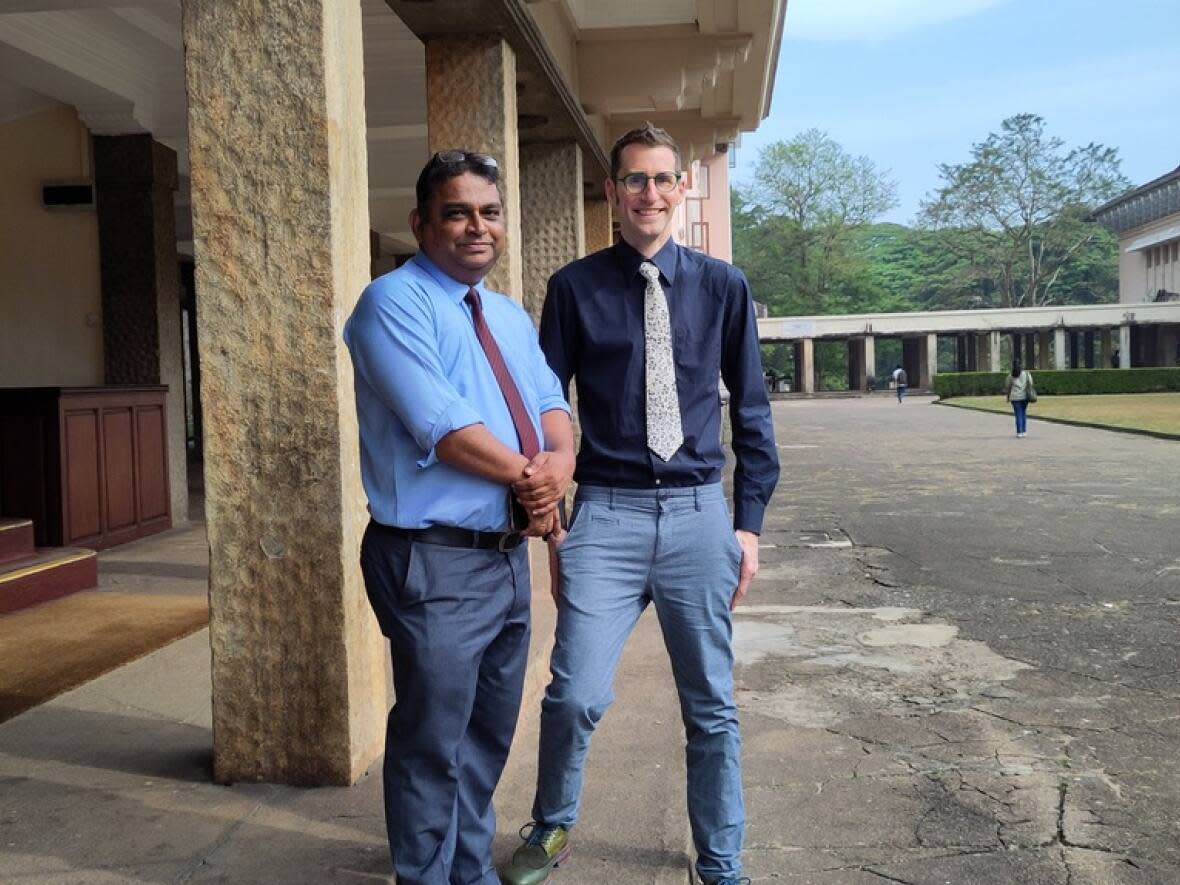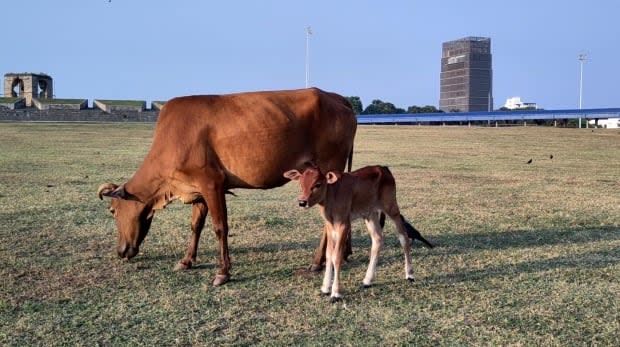They became friends on the Prairies — and are now working to fight a global health threat in Sri Lanka

Two scientists whose connection was sparked in Saskatchewan are working together from different sides of the globe to improve animal health in Sri Lanka, in hopes of addressing a potential global health threat.
"Literally right here is where we sat together," said Joe Rubin, looking around his lab at the University of Saskatchewan.
It's the scene where an international friendship formed on the Prairies.
Rubin is a professor of veterinary microbiology at the Western College of Veterinary Medicine in Saskatoon. He met fellow scientist Roshan Madalagama almost 11 years ago, when Madalagama came to Saskatchewan from Sri Lanka as a graduate student.
"I believe that my second home is in Canada," Madalagama told CBC from Peradeniya, Sri Lanka.
"As a mentor, [Rubin] is one of the greatest people I've ever met in my life. There's no doubt about that."
Rubin supervised Madalagama as the two studied antimicrobial resistance, or AMR — the same issue they're tackling today.
Only now, it's Madalagama taking the lead.
"As a supervisor, there is nothing as gratifying as when your student kind of surpasses you," Rubin said with a laugh.
"Dr. Madalagama has gone on to do really amazing things. He's been a really inspirational person in his country."
WATCH| How this friendship could help fight a global health threat in Sri Lanka:
AMR a 'major global threat': WHO
Antimicrobial resistance is what happens when bacteria, fungus and parasites build up resistance to medication like antibiotics, making infections harder to treat and some procedures riskier. It can happen due to the overuse or misuse of those medications.
The World Health Organization deems AMR a major global threat, and the rates are especially high in Sri Lanka.
Up until last year, Madalagama said his country didn't monitor that resistance in animals — only humans.
The immediate worry is if it goes unchecked, vets in Sri Lanka won't be able to treat illnesses in livestock — which many families depend on for income or food for their own families.
"They're really relying on it for their nutrition, so it's not the bigger-scale agriculture that we may be familiar with here in Saskatchewan," said Rubin.

The overarching concern, however, is that resistance seen in animals could transfer to humans anywhere.
"All the world is like one village — a global village," said Madalagama.
"So because of that, we need to have a very collective effort."
Madalagama has helped the WHO and Sri Lanka's government address antimicrobial resistance from a veterinary standpoint, but now he and Rubin are focusing on more grassroots work.
Thanks to funding from the University of Saskatchewan, the two started a years-long effort to help rural vets in Sri Lanka detect issues faster, and improve training at the country's national veterinary lab.
Their first endeavour was to create a lab manual, accessible from anywhere in the world. Rubin visited Sri Lanka in March, and plans on welcoming two vet technicians to Saskatoon this fall.
Madalagama said he's excited his colleagues can learn from Rubin, just as he did.
"They really like to have these kinds of very good opportunities to learn from a Canadian expert," he said.
"He changed my life."


